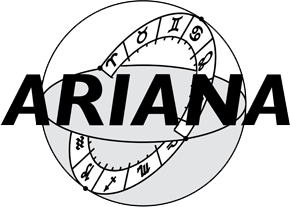Your Planets
Portraits of the Planets
Aspects between Planets
The planetary ages
The planetary families
Planets in Signs
The Planets in comics


The aspect of Transcendence that I am going to talk about here concerns the planet Mercury, whose function is Transcendence of Representation. The chart of Vladimir Nabokov and the reading of “Lolita” allowed me to study how this planet transfigures our simplistic representations to give them access to a higher dimension: that of the marvelous.
.png)
.png)
.png)

In 1959, Vladimir Nabokov hit the headlines by publishing Lolita, a novel now hailed as one of the boldest and most essential in world literature. His statement was considered scandalous and immoral at the time. The book is indeed the story of the impossible love between a middle-aged man, Humbert Humbert, and a twelve-year-old American girl, Lolita. But more deeply, it is above all a confession as moving as it is ironic, and the confession of a man for whom to love means in one way or another to transgress the norm, whatever it may be.
Vladimir Nabokov was born on 22nd April 1899, in Saint-Petersburg, at 4:26 OT. Dominated by Mercury, its chart refers to the absolute necessity of transcend representation that we can make of life, to try to “enchant it” and overcome its inherent triviality. The absolute love that the narrator feels for his Lolita allows him to affirm his freedom and therefore, to live his life in a form of perpetual aesthetic refinement.
“Lolita contains no moral lessons. In my eyes, a novel only exists insofar as it arouses in me what I would crudely call an aesthetic voluptuousness, namely a state of mind which joins, I don’t know where or how, other states of spirit in which art — that is, curiosity, tenderness, charity, ecstasy — is the norm.” This is how Nabokov sums up the raison d’être of an artistic work: a mercurial game that transfigures reality, surpasses it, transcends it to better reveal its absurd cruelty. Marked by the ‘R’, Nabokov’s chart refers mainly to the concern to invent a representation of the world that is not blindly subject to a so-called “reality”. Mercurian transcendence not only aims to create illusion by disturbing or distorting our representations, it responds more precisely to the desire to reveal how limited, relative or incomplete these representations are. The ludion, the free electron, the jester allow the king to laugh at himself and therefore ultimately to know himself.
Through the story of a “perversity”, Nabokov gives us to feel in the most refined and profound way, the absolute nonsense that hides behind the alleged “normality”. And it is passion, mad love, obsession, feelings by definition irrepressible, which best reveal the subjective nature of all truth, of all reality. For Nabokov, finally, the madman, the pervert, the obsessed, are only extreme variations of hyper-lucidity. As if the inevitable outcome of this lucidity passed through the recognition of a constitutive madness. True love leads the subject to inevitably put themselves at odds with laws and norms.
The dominant aspect of Nabokov’s chart is an opposition Sun-Taurus to Jupiter-Scorpio. As such, it seems to me interesting to note the circumstances in which Nabokov had the idea for this novel. “It was in Paris, at the end of 1939 or the beginning of 1940, when I was struck down by an attack of intercostal neuralgia, that I felt Lolita’s first little palpitation. As far as I remember, this foreboding shudder was triggered, I don’t quite know how, by reading a newspaper article relating that a scientist had succeeded, after months of effort, in sketching a drawing by a great ape from the Jardin des Plantes; this charcoal, the first to have been executed by an animal, represented the bars of the poor beast’s cage. There was no definite connection between the shock I felt then and the thoughts he set in motion; these, however, resulted in a short story of about thirty pages, which was the prototype of Lolita (The enchanter).”
We can therefore assume that the initial engine of Lolita was the theme of alienation in all its forms. The idea was certainly for Nabokov to succeed, through art, in freeing all representation from the bars that impede it. Like the butterflies that Nabokov was in love with and collected, these caterpillars that are by force of circumstance our representations, must succeed in freeing themselves from their chrysalis in order to be able to take flight and fully blossom. The individual solar has a lot to do with the frameworks, limitations and restrictive rules of Jupiter: “My personal tragedy is that I had to trade my natural idiom, my Russian vocabulary so rich, unrestrained and so wonderfully docile, for a poor substitute English devoid of all the props — the surprise mirror, the curtain of black velvet background, tacit traditions and associations — that the local illusionist, tailcoat in the wind, manipulates with magical ease in order to transcend the national heritage at will.” We have here a very beautiful illustration of the mercurian art of Nabokov which consists in resolving the conflict Sun-Jupiter by the magic of words and thanks to the spells of a language freed from the weight of its codes.
If I dared to make a bold comparison, it seems to me that conditionalism, in its essence, obeys the same principles. Jean-Pierre Nicola, also very mercurian, and which has a Sun-Jupiter configuration in its chart, has been able to create a system which obeys rules, codes and representations, but which at the same time contains its part of play, which allows it to transcend itself in a perpetual and living mobility. This mobility is the guarantee of its survival since only fixed representations, incapable of renewing themselves, are condemned to die.
Alienation and imprisonment are constitutive of the spirit of the novel since the book is in fact only the long confession of a condemned man. Imprisoned for having killed his rival, Clare Quilty, whom Lolita was in fact in love with, Humbert Humbert knows he is guilty: “If I had to judge myself, I would inflict on Humbert Humbert at least thirty years in prison, for rape, and I would reject all the other counts.” However, the actual alienation is elsewhere. Paradoxically, Humbert’s nature is deeply romantic while Lolita reveals herself as the story goes on, truly perverse. Alienated by his passion (itself restrained by morality and society), Humbert will be devoured by it, and it is Lolita who will implicitly kill him, betraying him for another. Wanting to live out his fantasy and his obsession in reality, he will end up discovering that his thirst for pleasure cannot accommodate the pettiness and vulgarity of reality. The men who condemn and judge the lover of nymphets Humbert Humbert are in the wrong crime because the real drama lies in the story of this impossible love beaten up and in the inability of a man to bear reality, and the lack of true love…
I quote a passage from Lolita: “Today, whoever wants to be an assassin must be a man of science. No, no, I was neither. Gentlemen of the jury, almost all of these schismatics of love, ardent to establish thrilling relationships with little girls, tenderly plaintive, physical certainly, but not necessarily going as far as fornication, are beings without malice, inadequate, timorous and passive, who ask nothing of anyone, except permission to continue their activities, supposedly criminal but in reality very harmless, the possibility of indulging in their humble antics, dark and moist and burning, without incurring the wrath of the police and society. We are not lust-obsessed demons! We do not violate like the valiant soldiers! We are melancholic and gentle beings, with poodle eyes, well enough acclimatized to know how to repress our desires in the presence of adults, but ready to sacrifice years of our lives for the chance of touching a nymphet. I repeat categorically, we are not killers. Poets do not kill.”
The girl who embodies the Lolita of the book constitutes a form of summary of all the superficial and hollow values that can be attributed to Mercury: the taste for futile and gratuitous pleasures, his extreme reactivity (position of Mercury in Aries) to unfounded signals: advertising, modes, ice creams, sentimental hit songs, etc. All these attractions only reinforce Humbert’s love for this inconsistent young girl, but as delicious, irresistible as a candy or a comic-strip bubble… (Le mercurien Gainsbourg repeatedly expressed interest in Nabokov’s novel). All the so-called deep things bore him: culture, thinking, responsibilities, feelings. She seems to go through life from the top of a kid without questioning. This lightness contaminates all aspects of life and love. This is how Nabokov ironically eludes anything biased or perverse that his book may imply. I quote:
“…the sexual act was part of the furtive world of childhood, and adults knew nothing about it. What grown-ups did for the purpose of procreation did not matter to him. And little Lo handled my life with a simplistic energy, as she would have done with a machine insensitive and foreign to me… Sexual problems, since they are called that, do not enter into my subject. Anyone who wants to can imagine these elements of pure animality as they please. A higher ambition guides me: to fix forever the perilous magic of the nymphets.”
If Nabokov thus dynamites any moral interpretation of his story, we also understand that he intends above all to go beyond the notion of morality by the force of his style and his demonic intelligence alone. The true strength of a humorist or a provocative spirit is to transcend morality through intelligence, thus demonstrating the relativity of any norm. Whether through magic, illusion, play or creative intelligence, Mercury atomizes the trivial, the simple, the banal to reveal something more complex, infinitely alive that we can call the “marvellous”. Behind the trivial and banal image of Lolita sucking a ice cream, Humbert Humbert perceives a whole fantastic universe which makes him reject any other reality. The virtuosity of Nabokov’s style is also exercised like a demon who would taunt the bland and hypocritical Puritanism of an America that wallows in the cult of appearance.
Etymologically, the word devil has the very mercurian meaning of “the one who separates, who disperses, who disunites”. Mercury scatters what Uranus has gathered, Mercury is the wind that scatters what is not grounded in the earth. Mercury’s diabolical role is to reveal what can be ridiculous and rigid about ready-made ‘R’ values. A simple gust of wind and everything flies away, just as a funny, treacherous or well-placed remark can ruin the confidence or self-esteem of someone imbued with their importance. To undermine reality, and the necessarily biased awareness that we have of it, we must enchant life and delude ourselves. To forget life, the Humbert Humbert of Lolita invents a fantasy (nymphism) that allows him to maintain his body and his mind in eternal youth and eternal grace. Mercurian triviality is the counterpart of the intellectual, moral rigor of Uranus, which is moreover the planet “blind” of Nabokov’s chart.
Transcendence is not always hidden where we believe. In any case, it is not always comparable to tortured, serious, respectable mysticism, “religiously correct” of Neptune-Saturn or the disembodied coldness of Uranus-Pluto. There is also a light, funny and sassy form. This anti-dogmatic and truly free form is called Mercury. Or to put it another way, for Nabokov, transcendence with a “small t”, that’s art, with a capital ‘A’.
Article published in issue No. 28 of the Cahiers conditionalistes (1993).

Le petit livre du Taureau
par
49 pages. Illustrations en couleur.
Ce livre présente et explique les trois zodiaques : celui du décor des constellations, celui de l’astrologie traditionnelle basé sur les Quatre Éléments symboliques (Feu, Terre, Air & Eau) et celui de l’astrologie naturelle basé sur les phénomènes astronomiques objectifs.
Interprétation du Taureau selon la symbolique classique et selon ses réflexes dans le zodiaque naturel (force, vitesse, équilibre) ; interprétation du Taureau en fonction des planètes dominantes ; le Signe solaire & le Signe Ascendant.
Téléchargez-le dès maintenant dans notre boutique